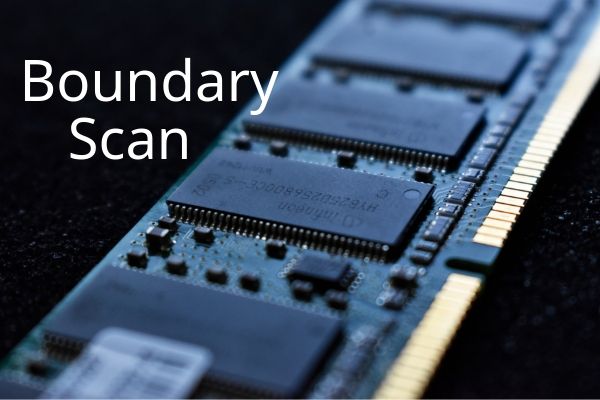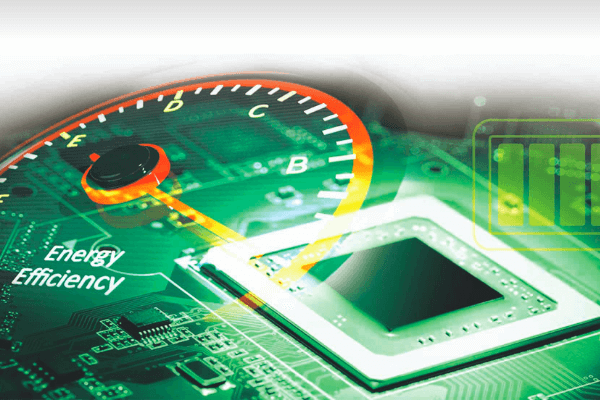With the rising global focus on environmental protection and sustainable development, there is an increasing demand for energy-saving, carbon-reducing, and low-carbon products. Technology advancements and diverse application scenarios are driving various industries to seek high-performance, low-power solutions. These demands are primarily coming from the following sectors:
- Smartphones and Mobile Devices: As smartphones become more powerful and multifunctional, they require higher performance and lower power memory to support multitasking and extend usage time. Low-power memory helps prolong battery life and enhances the user experience.
- Internet of Things (IoT) Devices: IoT devices are increasingly used in smart cities, smart homes, and Industry 4.0. These devices often run on battery power for long periods of time, making low-power consumption essential.
- Automotive Electronics: The development of autonomous driving and electric vehicles requires high-performance, low-power memory to support real-time data processing and analysis and extend the driving range of electric vehicles.
- Industrial Automation: In industrial automation, low-power memory improves equipment reliability and performance while reducing operating costs and energy consumption.
- Smart Home Devices: Smart home systems require low-power memory to maintain low power consumption during standby and ensure instant response, thus improving overall energy efficiency.
Energy-efficient and carbon-reducing products do not necessarily have to be disruptive innovations. Insights can be gained by understanding customer needs and the development of SOC/MCU, especially customer requirements. Gathering comprehensive information to accurately reflect product specifications is crucial for maintaining competitiveness.
Developing energy-saving and carbon-reducing products is a continuous effort, including circuit design, process development, packaging form, material improvement, etc., which all contribute to energy-saving and carbon reduction.
Winbond also foresees the market trends of new generation products and continuously invests resources to pursue sustainable innovation in semiconductor design, production technology and products. We provide green products with low carbon emissions and low power consumption to enhance our customers' competitive advantages and market share in green business opportunities. Winbond continues to strive to improve its overall sustainable competitiveness.
HYPERRAM™ Achievements in Energy Efficiency and Carbon Reduction
- HYPERRAM feature: HYPERRAM finds its applications in low-power IoT terminal products, including wearable devices, where it supports functions like voice control and tinyML inference. It is also well-suited for automotive dashboards, entertainment systems, industrial machine vision systems, HMI displays, and communication modules.
- HYPERRAM's Design Goals: From the outset, HYPERRAM was engineered to replace traditional SDRAM in future IoT applications. Compared to SDRAM, HYPERRAM can reduce operating power consumption by 70% and standby power consumption by 5%, meeting the low power consumption needs of the emerging consumer trends in wearables and smart devices.
- Product Evolution: In 2022, HYPERRAM 3.0 mobile memory was launched, achieving a 40% reduction in per-bit energy consumption while doubling the IO count. In 2023, the 1.2V WLCSP and 1.35V BGA49 packages were introduced. The 1.2V HYPERRAM consumes 33% less power compared to the 1.8V HYPERRAM. HYPERRAM 3.1 products were also introduced, becoming essential low-power components for wearable devices. The 16-bit interface accelerates data transfer rates, providing a simplified, competitive, and long-lasting battery solution for low-power, smart processing, and HMI display fields.
- Packaging Advancements: Continuous advancements in small-sized packaging, from SDRAM's TSOP and BAG60/54 to HYPERRAM's BGA24, 4x4 mm2 BGA49, and wafer-level packaging (WLCSP), have significantly reduced carbon emissions during production.
![[機密] 精稿更新V2(白底)_HYPERRAM 網頁_華邦電子_230116](/export/sites/winbond/support/online-learning/images/-V2_HYPERRAM-__230116.png)
KGD Contributions to Carbon Reduction
Winbond has been deeply involved in the Known Good Die (KGD) field for many years, collaborating with chip manufacturers to provide System in Package (SiP) multi-chip packaging solutions. These packaging solutions play a valuable role in addressing net-zero and environmental sustainability issues, creating energy-saving and carbon-reducing end products focused on low-carbon and green products. Customers utilize Winbond's professional assistance to incorporate Winbond KGD memory in their SiP solutions. Memory KGDs and controller chips are stacked together and placed in a single package or module to provide SiP solutions. Other components' KGDs can also be stacked with memory KGDs to save packaging materials and chip area, enhance performance, and reduce power consumption.
- Reducing Material Waste: KGD technology ensures that each die is a good die through wafer level testing and selection before packaging with the SoC, thereby reducing material waste and the required circuit board area.
- Simplifying Assembly Processes: KGD technology simplifies assembly and packaging processes, further reducing energy use and carbon emissions during manufacturing.
- Reducing Energy Consumption: KGD technology provides shorter signal transmission paths, smaller parasitic capacitance and lower I/O driving requirements, thereby reducing energy consumption.
Winbond CUBE's New Product Line Carbon Reduction Effects
High Performance, Low Power Design with Advanced Packaging: Extending the advantages of KGD, the CUBE product line combines advanced process technology with innovative low-power circuit designs. Through more advanced 2.5D or 3D packaging solutions, with reduced parasitic resistance and capacitance, memory products will achieve higher operational efficiency and lower energy consumption, becoming high-performance, low-latency, and low-power memory solutions.
- Power Efficiency: CUBE consumes less than 1pJ/bit, making it particularly well-suited for energy-sensitive applications.
- High Data Rates: CUBE provides total bandwidth ranging from 256GB/s to 1TB/s per die, ensuring accelerated performance that exceeds industry standards.
- Compact and Customizable Design: CUBE's 3D stacking options and compact size make it ideal for portable and space-constrained devices.
- Memory Densities: CUBE can be designed with densities ranging from 1-8Gb/die based upon the Winbond D20 process, or 16Gb/die upon Winbond D16 process.
Process Technology Evolution and Carbon Reduction Benefits
- Process Technology Evolution: Continuous process shrinkage increases wafer yield, reducing the carbon footprint per die. Each complete process node can effectively reduce carbon emissions per die by 20-35%.
- Improved Manufacturing Processes: Winbond has optimized various process steps in DRAM manufacturing, including reducing process steps, increasing material utilization, and improving the energy efficiency of equipments. These measures collectively saves energy and reduce carbon in the production process.
CMS Commitment to Energy Efficiency and Carbon Reduction
At Customized Memory Solution (CMS), our mission goes beyond manufacturing with renewable energy. We prioritize understanding customer needs, addressing system-level challenges, and continuously innovating to develop products that minimize energy consumption—making these efforts a core part of who we are.
CMS specializes in delivering memory solutions tailored to the unique demands of enterprises. Each solution is carefully designed and optimized for specific applications or environments, ensuring exceptional performance, reliability, and cost-efficiency.
Customized Memory Solutions focus on the following key areas:
- Memory Capacity and Speed: Designing memory modules with the appropriate capacity and speed to meet specific application requirements.
- Memory Types: Providing a range of memory options, such as DDR4 and LPDDR4, to suit various requirements.
- Power Management: Optimizing energy efficiency to extend battery life and reduce overall power consumption.
- Reliability and Durability: Engineering memory solutions built for tough environments, including industrial, medical, and military applications, ensuring long-term performance and reliability.
These customized solutions are typically developed and delivered by professional memory suppliers or manufacturers, tailored to meet the specific needs of customers. This approach ensures optimal performance and seamless system compatibility.
CMS is committed to enhancing product value as a foundation for achieving stable sales and sustainable profitability. Looking ahead, CMS aims to launch high-value products that not only fulfill customer needs for energy efficiency and carbon reduction but also contribute meaningfully to environmental protection and sustainable development. Together, we strive to create a cleaner, greener future.


 English
English










